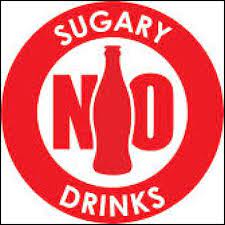
July Challenge: Reduce or Eliminate Sugar-Sweetened Beverages
Our Challenge in July: Reduce or Completely Eliminate Sugar-Sweetened Beverages (SSBs)!
This month, we are focusing on the impact of sugar in your diet. SSBs include soda, energy drinks, sports drinks, and juices. SSBs are consumed at a high rate, provide empty energy and are nutrient poor (Avery et al, 2015). They usually displace other more nutritious drinks like milk/milk substitutes and water (Brown, 2019, p314). They also do not provide hydration and contribute to tooth decay (Brown, 2019, p314).
Additionally, many people rely on quick, processed foods for meals and snacks. These products often contain added sugar, fat and salt and make up a large proportion of a person’s daily caloric intake. If you are at all concerned about your health and weight, eliminating processed food should be the first thing you do to improve your nutritional status and decrease your calorie consumption.
Experts believe that sugar consumption is a major cause of obesity and chronic diseases, including, but not limited to, type 2 diabetes, heart disease, cancer, non-alcoholic fatty liver disease, cognitive decline and depression (Rippe et al., 2017).
Take the pledge to AVOID or ELIMINATE sugar-sweetened beverages in July!
Share our blog post on Facebook or Instagram and encourage others to join you!
References:
Avery, A., Bostock, L., & McCullough, F. (2015). A systematic review investigating
interventions that can help reduce consumption of sugar‐sweetened beverages in children leading to changes in body fatness. Journal of Human Nutrition and Dietetics, 28(s1), 52–64. https://doi.org/10.1111/jhn.12267
Brown, J. E. (2019). Nutrition Through the Life Cycle (7th ed.). Cengage Learning.
Rippe, J., Sievenpiper, J., Lê, K., White, J., Clemens, R., & Angelopoulos, T. (2017). What is the
appropriate upper limit for added sugars consumption? Nutrition Reviews, 75(1), 18–36. https://doi.org/10.1093/nutrit/nuw046

Leave a Reply